Can structured, competition-focused climbing be beneficial for young people? Ben Williams reports from The Castle Competition Squad's training session where young climbers chat about commitment, channeling competitive energy and why they love climbing.
The regulars in the cave-like bouldering area have stopped climbing to watch the youngsters who have just swarmed onto the walls around them. The Castle Competition Squad are doing their warm up and, dressed in unselfconscious ‘Comp Squad’ T-shirts and shorts or leggings, work their way through the easier boulder problems methodically. They have a spidery ease and power – a flurry of heel hooks and high feet - and don’t seem to rest between repetitions, all of which seems too much for the jeans wearing regulars who soon vacate the area.
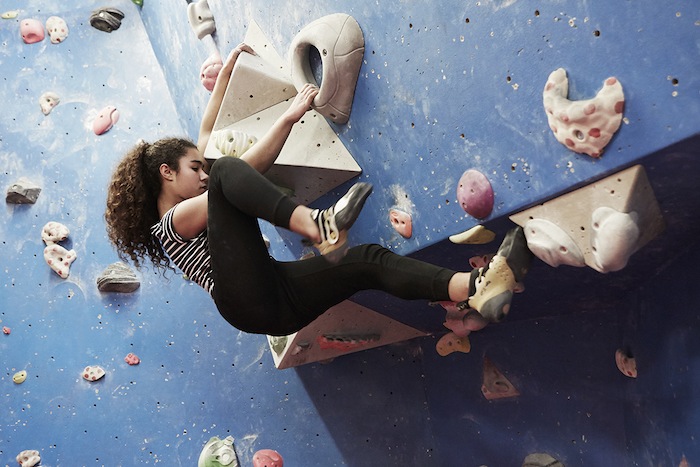
This two-hour early evening session for the ‘B’ group or younger members of the squad is being led by the centre manager of The Castle Climbing Centre, Ben Levey, a loose limbed and softly spoken Teessider in a baseball cap. Levey has been through the rigorous Neil Gresham ‘Masterclass’ course so is well placed to explain the purpose of tonight’s session: “They’ve got a competition – the BMC Youth Climbing Series – coming up so we’ll have a relaxed session tonight, as always before a comp. We’ll do some fall practise and a bit of power work on the boulders. That is if we can find anything they haven’t already climbed”.
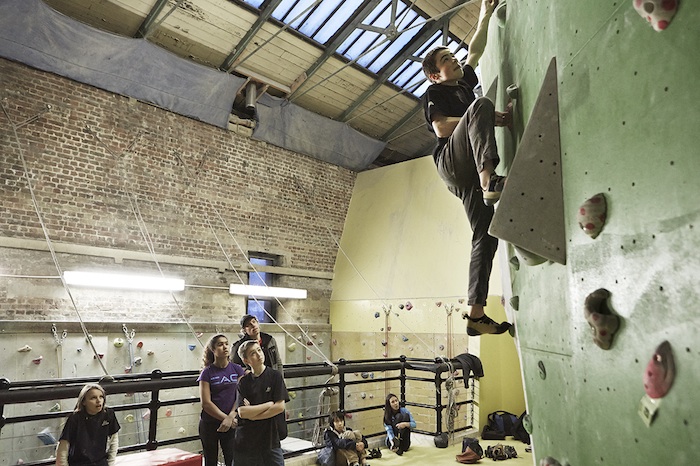
One of the young climbers, Alex, who looks more like a choirboy than a climber, comes down off a roof problem to chat. He does not look out of breath; Levey says he is very competitive.
“Too competitive”, says the 13 year old knowingly. “I get annoyed when I don’t do well. But you learn to channel this fury into your climbing”.
On a break from their warm up, other members of the team suggest the qualities which have turned them into good young climbers. Eugene (14), who is on the GB bouldering team, speaks of a past interest in gymnastics and dance “before climbing took over”; Mia (11), a tiny girl in bright 1980s leggings with an enormous grin, says she used to go swimming “but only because I had to” and that she “loves climbing”. In an endearing way (which you feel they mean) both young women also talk about ‘commitment’.
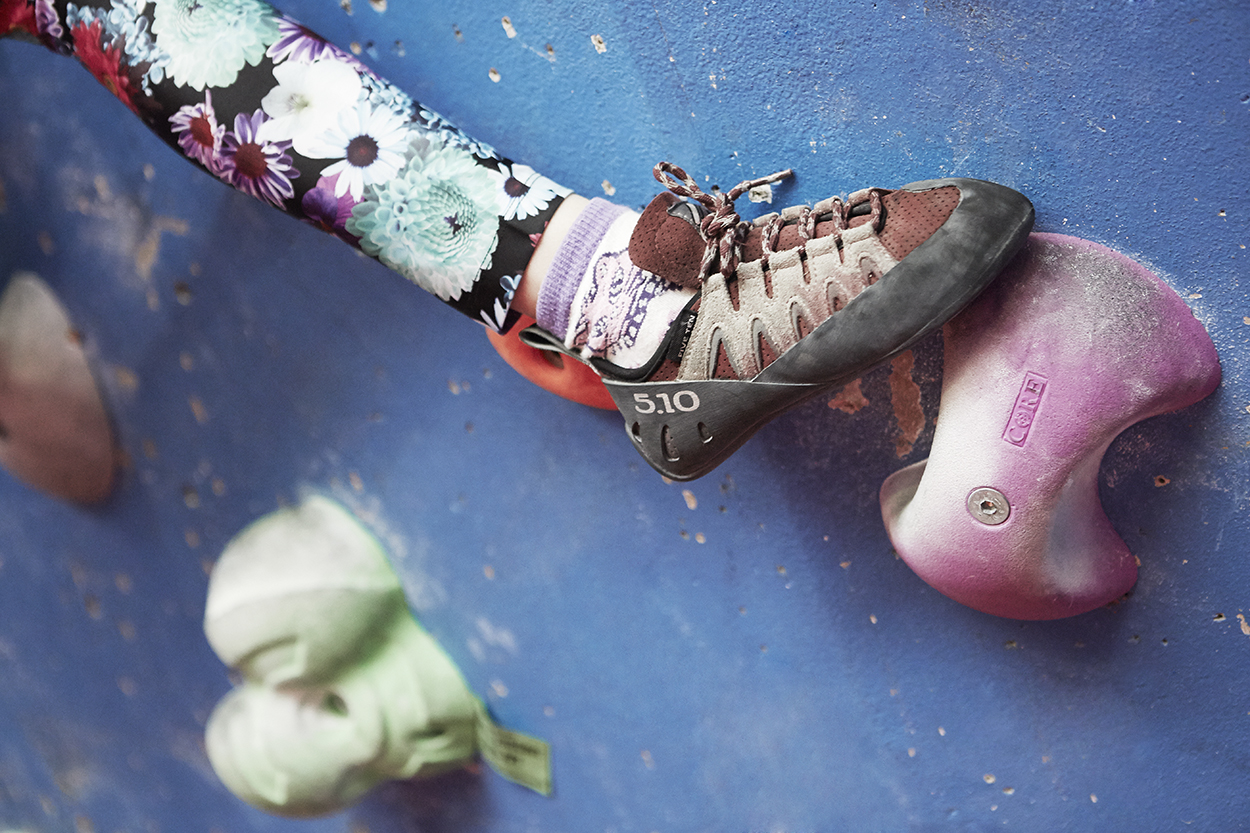
But the team members are also mindful of the importance of balance and none more so than Zoe, a gangly, intelligent 16 year old member of the older ‘A’ group who only has a month until her GCSEs begin. Zoe isn’t scheduled to be here tonight but has come down to do some extra miles before the competition on Saturday. Her father David is here to belay and comes over to say hello. Does he ever worry that Zoe ever does too much climbing? “Climbing is social, fulfilling and structured”, he says. “It’s a great complement to her GCSE work”.
And Zoe agrees. “If you’ve been sat at a desk all day in school, coming to the climbing centre is a great relief”.
Coach Ben Levey is convinced that this sort of structured, competition focused climbing is right for young people in an urban context like London, even if the competition isn’t an end in itself.
“We’re trying to foster a long term interest here, irrespective of how well they do in competitions. But that’s not going to happen without the impetus which competitions provide”.
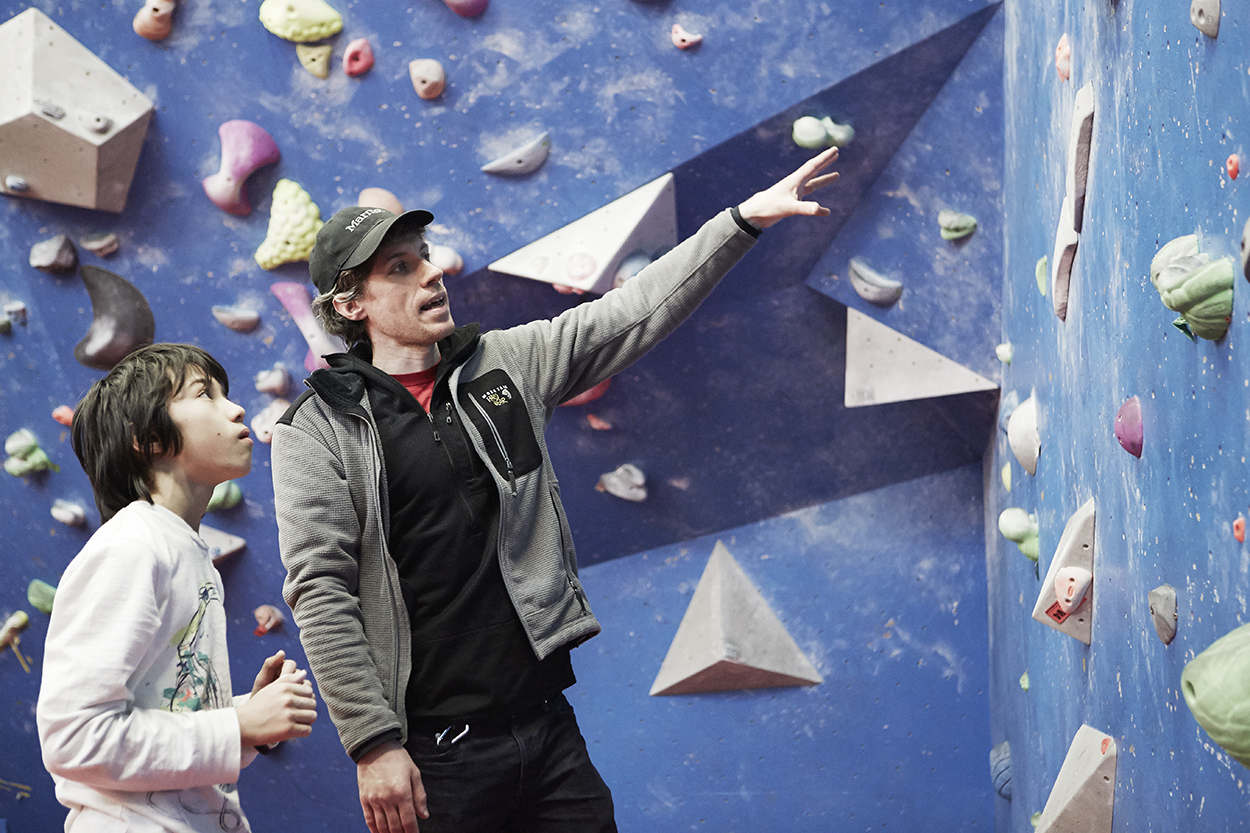
Levey himself had a very different climbing education, growing up in the North East in the 1990s and coached by key activists from within the trad scene there. But he’s also quick to recognise the similarities between then and now. “The guys [on Teesside] were keen on climbing hard, rather than just climbing. And in that way the course we run here is very similar to my own upbringing”.
Levey has moved the session upstairs into the centre’s new loft area and the team have been joined by Jim Pope, team captain and proof that Levey’s interest in producing strong, engaged young climbers is bearing fruit. At 13 years old Pope became the fourth youngest Briton to climb 8a when he repeated Ben Moon’s ‘Hot Fun Closing’ on Rubicon Wall in Derbyshire's Water-Cum-Jolly and a climb whose history Pope understands. He has subsequently climbed E6 and recently climbed 8b+.
“My main motivation is to see young climbers like Jim developing, both as climbers and as people”, says Levey.
Pope, now 15, is unerringly polite and good humoured and his budding professionalism is clear to see. There is also a punchy fluency to his climbing, evident now as he demonstrates a rising traverse he has set for the group to try. What does he think about his personalised training regime, laced with gruelling cascades and 6x4s? “It’s fine”, says Pope. “I sometimes feel a bit sick after a session. But I try to get through it fast as I can and focus on what I’m having for dinner”.
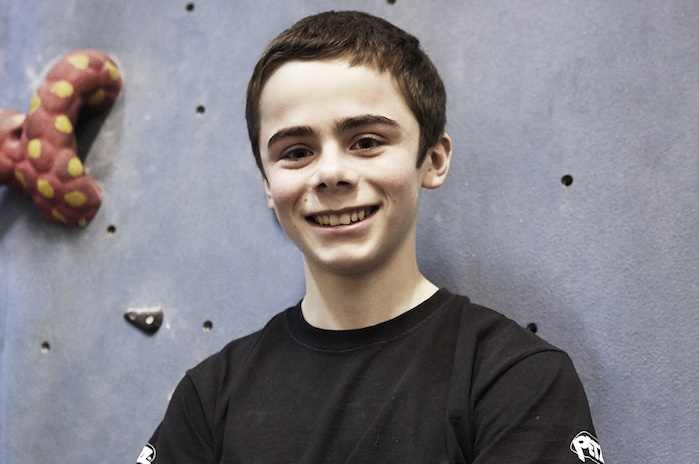
The group are cheerful and relaxed as they take it in turns to work Pope’s boulder problem, calling out gentle encouragement as they sit on the mats to observe. There is clearly an important social element to the sessions; and the competitions are about a lot more than what one parent calls “driving from one industrial estate to another”. These young climbers are developing as people, working as a team and learning to handle the very adult pressures of competition. But they also clearly love climbing and are developing outdoor ambitions along the way.
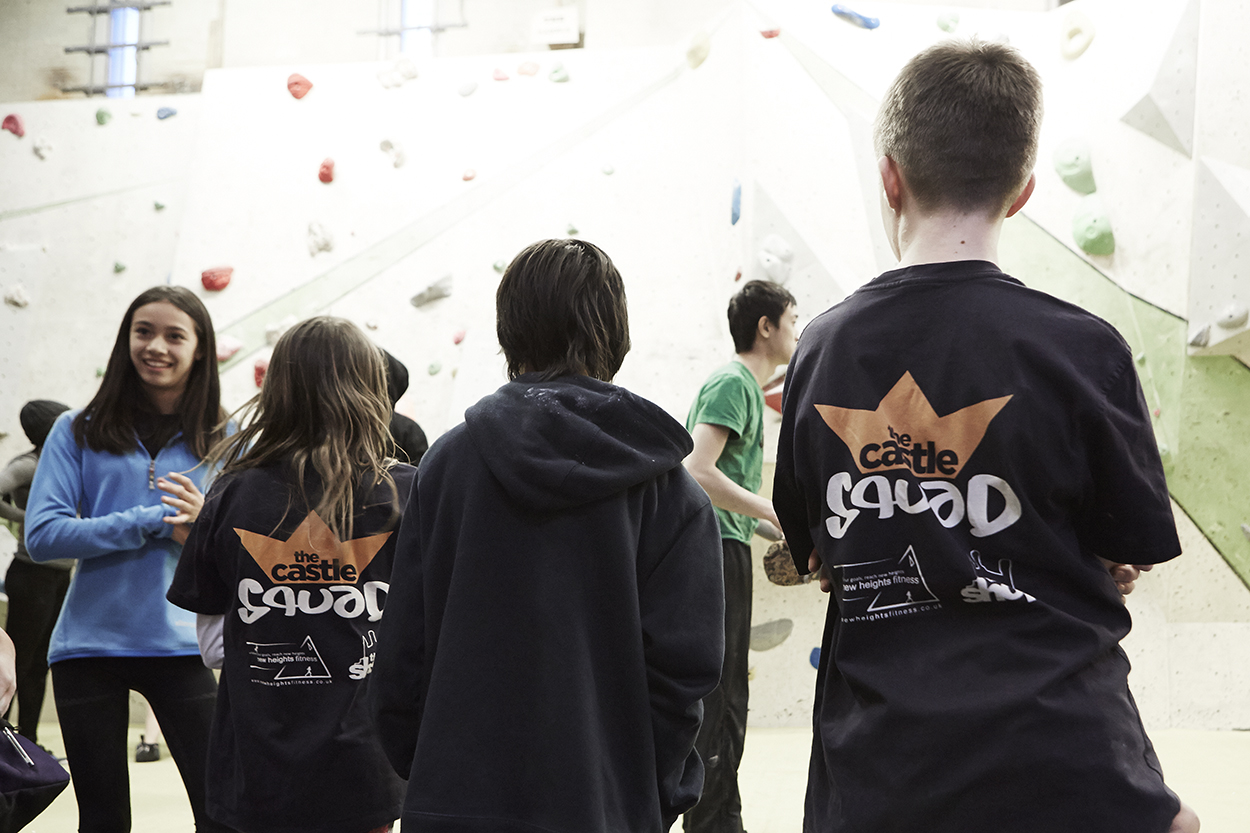
As we leave the group are chatting about their plans for the future. “What’s sandstone like?” asks Mia. “I think I prefer granite”, volunteers Eugene. Which moves the conversation on to El Capitan and what choirboy Alex says he prefers in climbing. “I did a big multi-pitch with my dad in America. It started on jugs and there was a huge off-width, an arête. There were all kinds of different climbing. We started in the morning and there was mist everywhere. For me, that’s what it’s all about”.
« Back